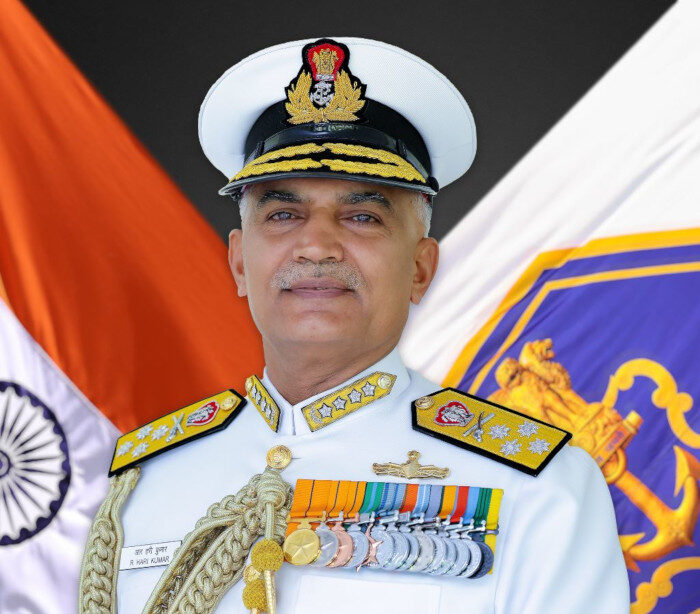On Monday, Admiral R. Hari Kumar, Chief of Naval Staff, said that the seas will be the engine of future growth and wealth. He said it was very important to keep the seas safe, stable, and secure.
He also said that the BrahMos weapon is very strong and that it is getting better in terms of its range, capabilities, ability to kill, and other things.
The Cabinet Committee on Security (CCS) has given the Indian Navy permission to buy more than 200 BrahMos fast cruise missiles and other equipment that goes with them. The total cost of this will be about Rs 19,000 crore.
In his speech at the Maharashtra MSME Defence Expo held here, the naval chief said that worries about the spread of sensitive technologies like WMD (weapons of mass destruction), missiles, and drones have taken on new roles because rogue states and non-state actors are using them to gain an unfair advantage.
A lot of the oil that the country receives comes from the seas, according to him. The 2 million square km exclusive economic zone also has a lot of marine resources and wealth.
He also said that the oceans and seas around them are very important for the business.
“As our country tries to find its place in the community of nations, it is clear that the seas will be the engine of future growth and prosperity.” As our economy grows to become the third biggest in the world, most of our trade will happen on the seas. That’s why it’s so important to keep the seas safe, stable, and secure; that’s the job of maritime security agencies like the Indian Navy and Coast Guards, he said.
Admiral Kumar firmly believes that the country is moving from a tense present to an unsure future, and he believes that there will be fierce competition in every area.
“These are made worse by the fact that disruptive technologies are being used by non-state actors, state-sponsored actors, businesses, and interest groups,” he said.
It’s already hard to tell what will happen in the future, but the unknowns that make up the estimates for the next few decades are really scary. These things happen because the range, size, and depth of powers offered by some new drivers are growing very quickly, he said. One of these drivers is technology.
Concerns about the spread of sensitive technologies like WMD, missiles, and drones have taken on a new role in the present and the future. This is because non-state actors and rogue states are using these technologies for unfair advantages, as we can see in West Asia right now, according to the naval chief.
“With ongoing operations against drones and pirates, the Indian Navy remains at the forefront of protecting India’s maritime interests and important global trade routes,” he said. “They protect merchant ships in the north and west Arabian Sea from missile attacks and pirates.”
He said that the Indian Navy would not think twice about using all of its tools to protect the Indian Ocean Region (IOR) and keep it safe, secure, and stable.
Admiral Kumar said that the “atmanirbhar” (self-reliant) defense business is the most important part of “Atmanirbhar Bharat.”
“While there are business and financial aspects to it, one must always keep in mind that atmanirbharta and defense are no longer an economic necessity, but a strategic requirement for maintaining strategic autonomy. Relying on outside sources for defense equipment would become a strategic vulnerability that could threaten the country’s security and growth, and this is something that cannot be compromised,” he said.
He said that the Indian Navy has more than 130 ships and 250 planes right now, and they expect that number to rise to 175 ships and 400 planes by 2035.
Later, Admiral Kumar talked to reporters about the CCS approving a deal for the Indian Navy to get 200 BrahMos missiles. He said that the BrahMos is a very powerful missile that is changing in terms of its range, capability, lethality, and other factors.
“The truth is that it’s made in India, and we no longer need anyone else.” It can be fixed, and extra parts are easy to find. “It will be the mainstay of something, which is why we are getting rid of all our old missile systems that we got from other countries and replacing them with BrahMos, which we can do very quickly,” he said.
